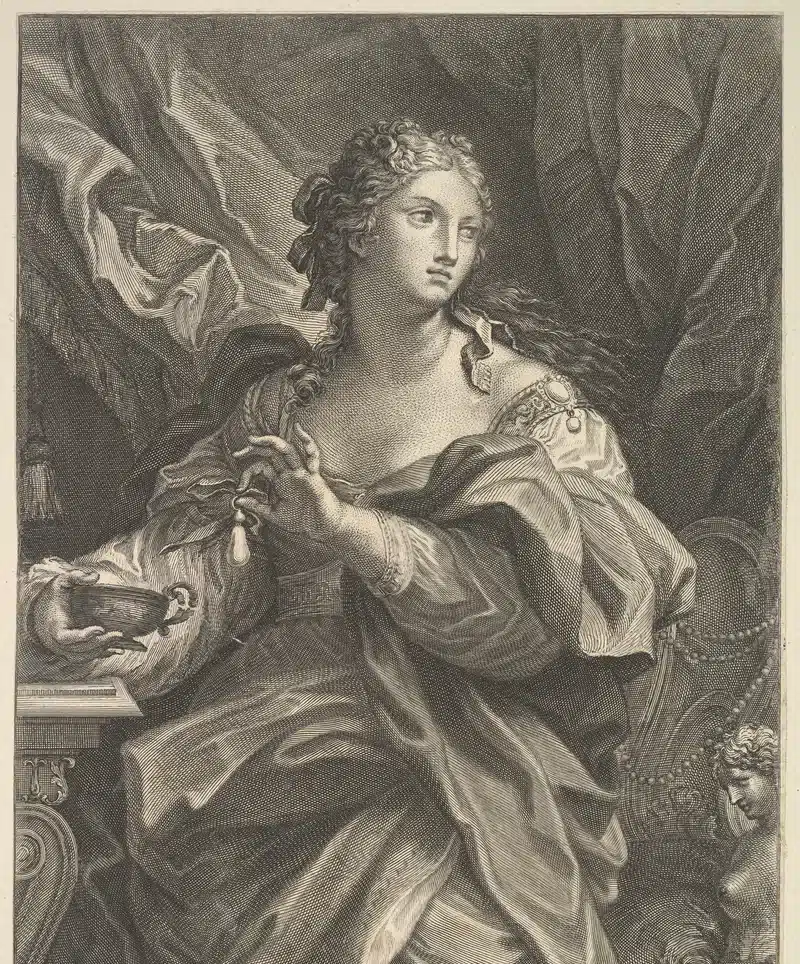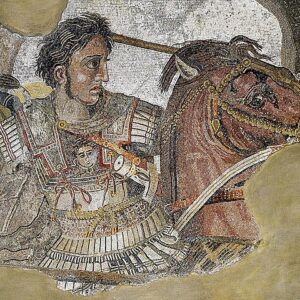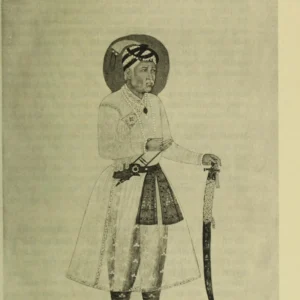Cleopatra VII, one of history’s most renowned and enigmatic figures, was the last active ruler of the Ptolemaic Kingdom of Egypt. Born in 69 BCE in Alexandria, Cleopatra’s intelligence, political acumen, and captivating persona have cemented her legacy as a powerful and iconic queen. Her reign, marked by alliances with powerful Roman figures and her efforts to restore Egypt’s former glory, remains a captivating chapter in ancient history.
Early Life and Ascension to the Throne
Birth and Background
Cleopatra VII was born into the Ptolemaic dynasty, a Greek-Macedonian royal family that ruled Egypt following Alexander the Great’s conquest. As the daughter of Ptolemy XII Auletes, Cleopatra received an education befitting a queen, studying subjects such as philosophy, rhetoric, and the sciences.
Ascending the Throne
In 51 BCE, following the death of her father, Cleopatra ascended to the throne alongside her younger brother, Ptolemy XIII. As co-rulers, they faced numerous challenges, including internal strife and external threats to their kingdom’s stability.
Cleopatra and Julius Caesar
Alliance with Caesar
In 48 BCE, Cleopatra found herself embroiled in a civil war with her brother, Ptolemy XIII. Seeking to solidify her power, she formed an alliance with Julius Caesar, the Roman general and statesman. Legend has it that Cleopatra smuggled herself into Caesar’s presence, rolled up in a carpet, to gain his favor.
Political and Personal Relationship
Cleopatra and Caesar’s alliance was both political and personal. She bore him a son, Ptolemy XV, commonly known as Caesarion. Together, they aimed to restore Cleopatra to her throne and strengthen Egypt’s position. Caesar’s support helped Cleopatra reclaim her throne, and she ruled as the sole monarch of Egypt.
Cleopatra and Mark Antony
The Beginning of Their Relationship
After Caesar’s assassination in 44 BCE, Cleopatra aligned herself with Mark Antony, one of Rome’s leading generals and a member of the Second Triumvirate. Their meeting in 41 BCE marked the beginning of a powerful and storied relationship.
Political and Military Alliance
Cleopatra and Antony’s partnership was both strategic and romantic. They sought to expand their influence and secure their power against their mutual rival, Octavian. Antony’s support bolstered Cleopatra’s position, and they jointly ruled over a vast territory.
The Donations of Alexandria
In 34 BCE, Cleopatra and Antony held a grand ceremony known as the Donations of Alexandria. During this event, they distributed territories and titles to their children, solidifying their power and challenging Octavian’s authority. This act, however, further strained their relationship with Rome.
The Battle of Actium and Cleopatra’s Downfall
The Battle of Actium
The rivalry between Antony and Octavian culminated in the Battle of Actium in 31 BCE. Cleopatra and Antony’s combined forces faced Octavian’s fleet in a decisive naval battle. Despite their efforts, they were ultimately defeated, leading to the collapse of their power.
Cleopatra’s Final Days
In the aftermath of their defeat, Antony and Cleopatra retreated to Alexandria. As Octavian’s forces closed in, Antony took his own life. Cleopatra, determined to avoid being paraded as a captive in Rome, chose to end her life as well. According to legend, she committed suicide by allowing an asp, a venomous snake, to bite her.
Cleopatra’s Legacy
Cultural Impact
Cleopatra’s legacy extends far beyond her political achievements. She has been immortalized in art, literature, and popular culture. Her story has inspired countless works, including Shakespeare’s play “Antony and Cleopatra” and numerous films and novels. Cleopatra’s allure and intelligence continue to captivate audiences worldwide.
Political Influence
As Egypt’s last queen, Cleopatra’s reign marked the end of the Ptolemaic dynasty and the beginning of Roman rule in Egypt. Despite her efforts to restore Egypt’s independence, her legacy as a shrewd and capable ruler endures. Her political alliances with powerful Roman figures underscore her ability to navigate the complex dynamics of her time.
Historical Significance
Cleopatra’s reign represents a pivotal moment in ancient history. Her attempts to preserve Egypt’s sovereignty and her influence on Roman politics highlight her significance as a historical figure. Cleopatra’s life and legacy remind us of the enduring power of charisma, intelligence, and political acumen in shaping the course of history.
Conclusion
Cleopatra VII’s life and reign were marked by extraordinary achievements, political intrigue, and personal charisma. As Egypt’s last queen, she navigated the complexities of her time with intelligence and determination. Her alliances with Julius Caesar and Mark Antony, her efforts to restore Egypt’s glory, and her enduring legacy as a cultural and political icon continue to fascinate and inspire. Cleopatra’s story is a testament to the enduring impact of a remarkable ruler who defied the odds and left an indelible mark on history.



